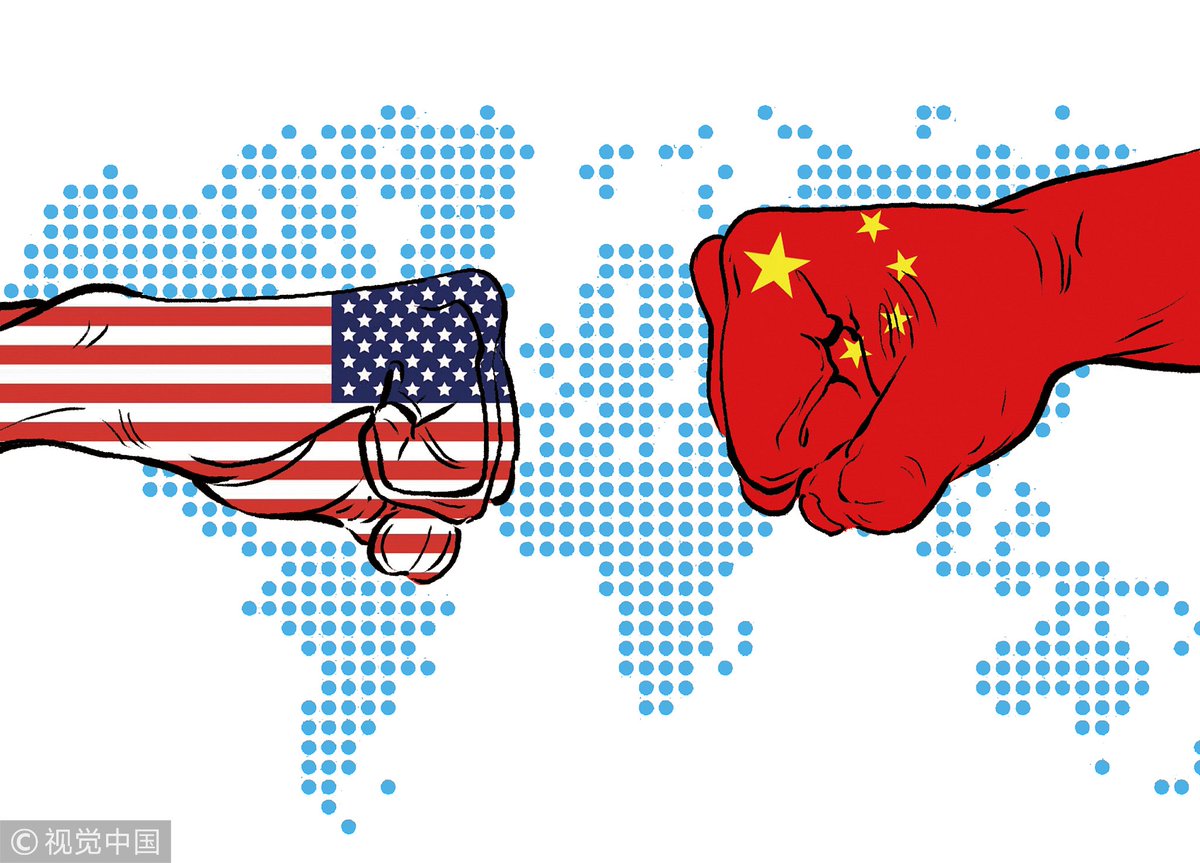Op/ed Bloomberg
Trump Is Misjudging China’s Resolve on Trade
You can’t defeat an opponent you don’t understand.
By
July 12, 2018, 4:00 PM CDT
Trouble as far as the eye can see. Photographer: Qilai Shen/Bloomberg
Donald Trump’s strategy in his trade war with China boils down to inflicting sufficient economic pain to eventually force Beijing’s leaders into concessions the president wants — whatever those may be. That’s the obvious purpose of the tariffs he plans to impose on another $200 billion of Chinese-made goods.
Trump may find with China, though, that there’s an inverse relationship between pressure and cooperation. Rather than bringing China’s leadership to heel, the extra duties are likely to prompt a digging in of heels. That means a longer trade war, with greater damage to the U.S. economy.
The latest moves may be not much more than optics, a reality show before midterm elections to make Trump appear tough. But the approach is also mired in misperceptions — and bluntly, plain ignorance — of modern China. To Trump and his advisers, that nation appears poor, dependent on the U.S. and susceptible to coercion. The reality is a global economic force with a proud and ambitious leadership that bases its legitimacy on restoring Chinese power. Those leaders will not be easily intimidated.
Team Trump’s first big miscalculation is over economic leverage. Because China
than vice versa, the administration reckons it has the upper hand. Stephen Moore, a Heritage Foundation fellow and former Trump economic adviser,
that “their economy cannot grow without access to the U.S. market.”
, and far from vulnerable. Julian Evans-Pritchard, senior China economist at Capital Economics Ltd., said in a July 11 report that the total $250 billion of exports facing U.S. tariffs represents only 1.3 percent of the country’s GDP, and the damage done by those duties might be only around 0.5 percent of output. That’s not pocket change, but it’s almost certainly insufficient to compel Beijing to grovel.
Nor does Trump appreciate whom his tariffs really hurt. He’s assuming Chinese companies and workers will bear the brunt, but that ignores global supply chains. Hannah Anderson, global market strategist at J.P. Morgan Asset Management, commented recently that “the majority of the value in the imports from China the U.S. has imposed tariffs on so far comes from other countries besides China.”
Where the U.S. administration misunderstands China most strikingly is in politics. Certainly, President Xi Jinping is an unelected strongman, and possibly president for life, who theoretically can pursue any policy he likes. But China doesn’t work that way. Xi, like Trump, has a public image to uphold; that image, like Trump’s, is wrapped up in nationalism.
Xi relentlessly portrays himself in state media as the stoic defender of the Chinese people, the man to restore the nation to its rightful place on the world stage — to Make China Great Again, you might say.
This bravado has a ready-made audience. Chinese media constantly remind the public of a litany of past humiliations at the hands of Western powers and their allies, especially Japan — the unjust wars and unequal treaties that turned a hegemon into the poor prey of gunboat diplomacy.
In
, Xi himself reminds his people of aggression against China and the determination of the Communist Party to right those wrongs. “The Chinese people have made continuous efforts for more than 170 years to fulfill the great dreams,” he
at a March congress. “Today, we are closer, more confident, and more capable than ever before.”
The government’s message is clear: China will no longer be a victim. As with global politics, so with trade. For example, the Ministry of Foreign Affairs
the latest tariffs as “quintessential trade bullying” and promised China would “stand on the right side of history.”
This state-fostered fervor makes it almost impossible for Xi to be seen to cave in to Trump, or indeed any outside force.
Eventually, the two sides will have to find
that allows both to claim victory. In the meantime, the tariffs will punish U.S. consumers and companies with higher prices, costing jobs, profits and growth and roiling financial markets, while making a face-saving compromise harder to reach.
Trump and his advisers appear to be undaunted. But they can’t defeat a foe they fail to understand.
This column does not necessarily reflect the opinion of the editorial board or Bloomberg LP and its owners.




